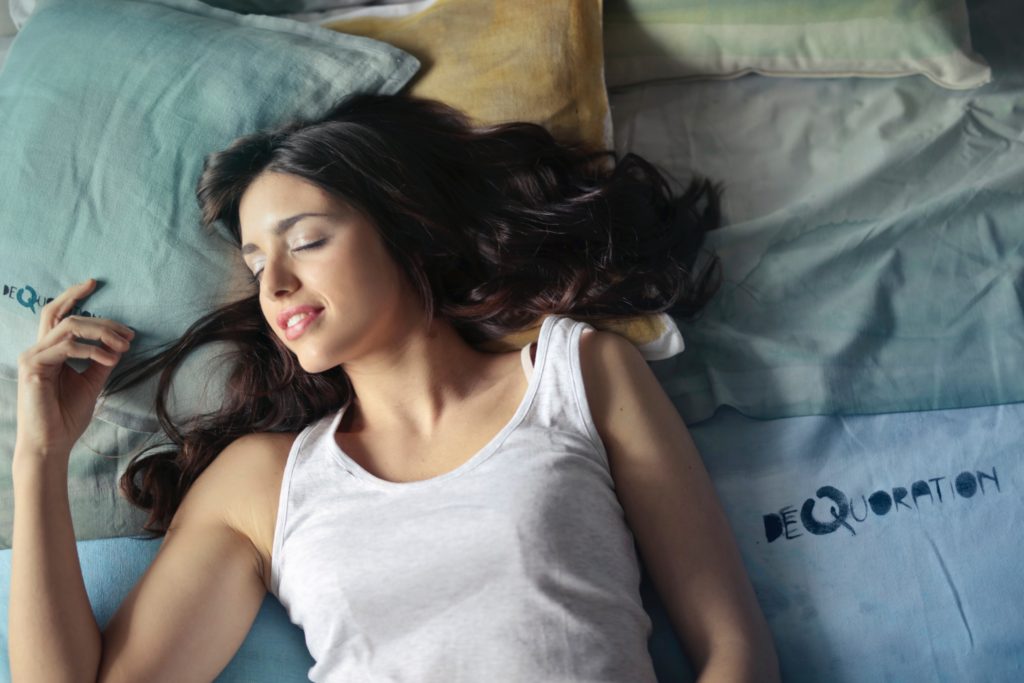The term “beauty sleep” is more than just a poetic phrase—its roots trace back centuries, and modern science confirms that quality sleep plays a crucial role in maintaining physical attractiveness and overall health. But where did this concept originate, and what does research say about the link between sleep and beauty?
The Origins of “Beauty Sleep”
The phrase “beauty sleep” dates back to at least the 19th century, when it was commonly used in literature and social circles to describe the idea that sleep enhances one’s appearance. Historically, beauty standards were closely tied to clear skin, bright eyes, and a well-rested, youthful look, which were all associated with getting enough sleep.
In an era before advanced skincare products and cosmetic procedures, people relied on natural remedies, including sleep, to maintain their looks. The phrase likely gained traction due to the observable effects of poor sleep—dark circles, pale skin, and a tired appearance—all of which were undesirable in high society.
In the early 20th century, advertisements for night creams, pillows, and even mattresses began using the term “beauty sleep,” reinforcing the idea that sleep was essential for looking attractive. Over time, scientific studies started validating what people had long observed: sleep deprivation negatively impacts skin health, facial appearance, and perceived attractiveness.
The Science Behind Beauty Sleep
Modern research confirms that sleep is an essential factor in skin rejuvenation, attractiveness, and overall health. Here’s how:
1. Sleep Promotes Skin Repair and Anti-Aging
During deep sleep, the body goes into repair mode, and this includes skin regeneration. Collagen production—a protein that keeps skin firm and smooth—increases during sleep, preventing premature wrinkles and sagging.
- A study published in Dermatology (2015) found that chronic poor sleepers had increased signs of skin aging, including fine lines, uneven pigmentation, and reduced skin elasticity.
- Sleep deprivation also leads to higher levels of cortisol, a stress hormone that breaks down collagen and contributes to premature aging.
2. Sleep Enhances Facial Attractiveness
Research has demonstrated that well-rested individuals are perceived as more attractive than sleep-deprived ones.
- A 2010 study from BMJ (British Medical Journal) found that sleep-deprived participants were rated as less attractive, less healthy, and more fatigued compared to when they were well-rested.
- Dark circles, swollen eyelids, and dull skin were the most noticeable changes that made sleep-deprived individuals look less appealing.
3. Blood Circulation and Complexion Improvement
Good sleep boosts blood flow to the skin, leading to a radiant, healthy complexion.
- A 2017 study from Royal Society Open Science found that after just two nights of restricted sleep, participants had paler skin, redder eyes, and more visible wrinkles, making them look significantly less attractive to observers.
Poor circulation during sleep deprivation can cause puffiness, under-eye bags, and a dull complexion, which reinforces the importance of getting enough rest.
4. Sleep Supports Hair and Eye Health
Lack of sleep doesn’t just affect the skin—it also impacts hair growth and eye brightness.
- Hair follicles rely on growth hormones, which are released during sleep, meaning insufficient sleep can lead to brittle hair, increased hair shedding, and slower hair growth.
- Tired, red, and dry eyes can make someone look exhausted and less attractive, whereas bright, well-hydrated eyes are associated with youth and vitality.
5. Sleep and Body Weight
Sleep plays a key role in weight management, which can also affect perceptions of attractiveness.
- A 2013 study in Nature Communications found that sleep-deprived individuals tend to crave high-calorie foods and are more prone to weight gain.
- Hormones like leptin (which signals fullness) and ghrelin (which signals hunger) become imbalanced with poor sleep, leading to increased appetite.
Maintaining a healthy weight through proper sleep contributes to a more symmetrical and toned appearance, which many studies link to perceived attractiveness.
How to Maximize Your Beauty Sleep
To reap the full benefits of beauty sleep, it’s essential to prioritize good sleep hygiene. Here are some science-backed tips:
- Get at least 7–9 hours of quality sleep each night to allow for skin repair and rejuvenation.
- Maintain a consistent sleep schedule to regulate hormonal balance and skin renewal cycles.
- Sleep on your back with a silk pillowcase to reduce friction on the skin and prevent sleep wrinkles.
- Stay hydrated and moisturized to support skin elasticity and prevent dryness.
- Limit blue light exposure before bed, as it interferes with melatonin production and can disrupt your sleep cycle.
Conclusion
The term “beauty sleep” originated centuries ago from the simple observation that sleep enhances physical appearance. Today, science has confirmed that sleep is essential for skin health, attractiveness, and overall well-being. From collagen production and facial attractiveness to healthy circulation and weight maintenance, quality sleep remains one of the best and most natural beauty treatments available.
So, if you want to look your best—whether for yourself or for others—prioritize a good night’s sleep. After all, beauty truly does rest on it.
References:
1. Axelsson, J., Sundelin, T., Ingre, M., Van Someren, E. J. W., Olsson, A., & Lekander, M. (2010). Beauty sleep: Experimental study on the perceived health and attractiveness of sleep-deprived people. BMJ, 341, c6614. https://doi.org/10.1136/bmj.c6614
2. Chung, J. H., Cho, S., Lee, J. H., Kang, S., Im, S., Kim, J. H., & Fisher, G. J. (2015). Sleep deprivation and skin aging: Quantitative assessment by image analysis and optical coherence tomography. Dermatology, 231(2), 131–139. https://doi.org/10.1159/000382515
3. Sundelin, T., Lekander, M., Kecklund, G., Van Someren, E. J. W., Olsson, A., & Axelsson, J. (2017). Cues of fatigue: Effects of sleep deprivation on facial appearance. Royal Society Open Science, 4(5), 160918. https://doi.org/10.1098/rsos.160918
4. Greer, S. M., Goldstein, A. N., & Walker, M. P. (2013). The impact of sleep deprivation on food desire in the human brain. Nature Communications, 4, 2259. https://doi.org/10.1038/ncomms3259

